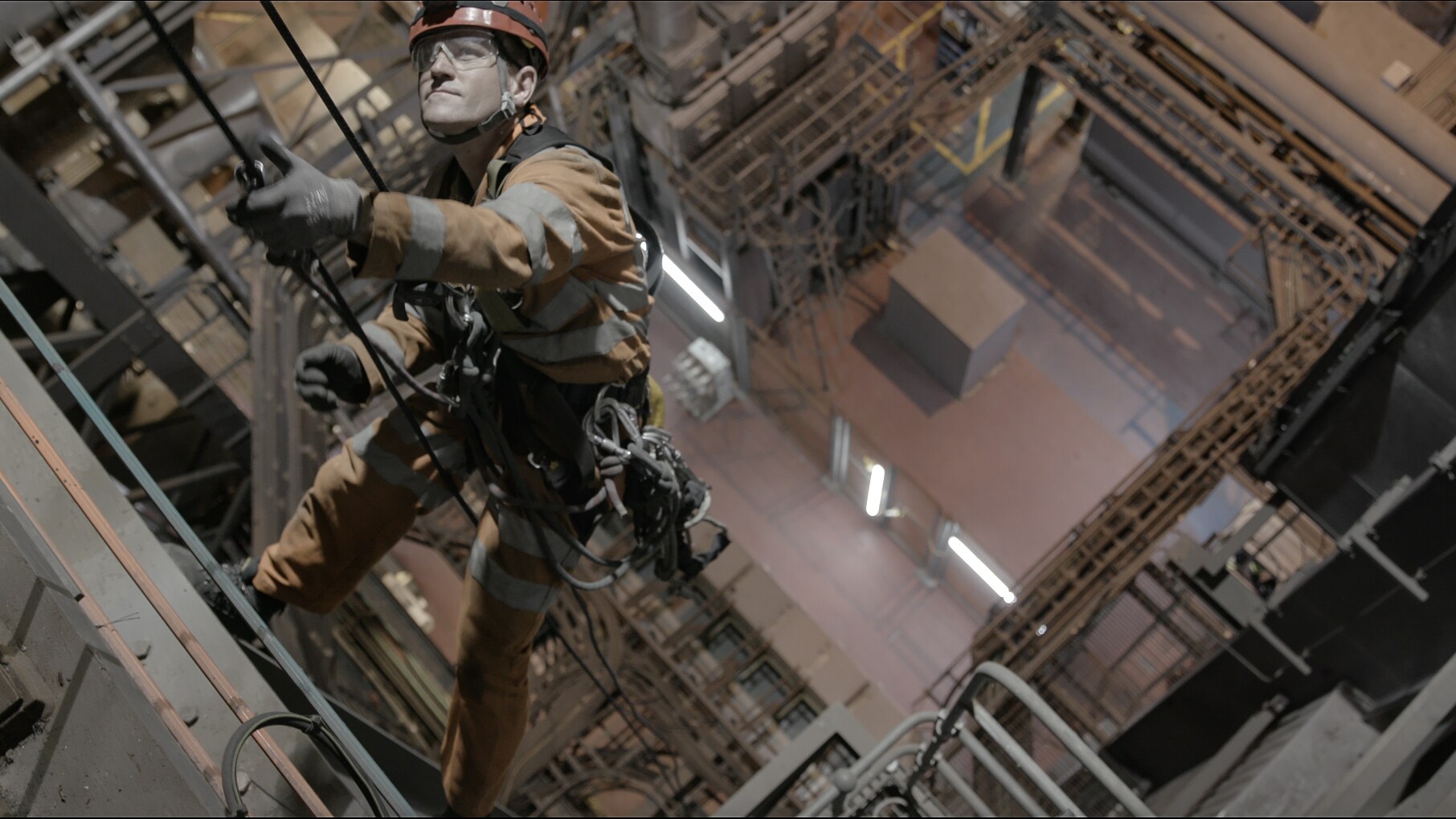If there’s one thing we don’t lack these days, it’s disaster. With horror and death always just one click away, we are more aware than ever of the precarious nature of the world around us. That said, these events are absolutely still worth documenting, especially when they reveal an inspiring narrative.
The Rescue is one such film, from the dynamic documentarian duo, Jimmy Chin and Elizabeth Chai Vasarhelyi, two rising stars fresh off the Oscar success of their previous film Free Solo. The documentary tells the story of the Thai soccer team that was trapped in a cave for a number of days in 2018. The Rescue focuses on the efforts and heroics of the British cave divers who were recruited to help rescue the team, and how they pushed the boundaries of science and cave exploration in order to bring them home.

The Rescue is a bit of a departure from Chin and Chai Vasarhelyi’s other works. It’s more experimental and less harshly realistic than their previous two films, Meru and Free Solo. This might be because of the amount of recreated footage, reenacted by the original cave divers but not shot at the time of the event. If so, Chin and Chai Vasarhelyi did an admirable job finding creative solutions to filmmaking limitations. The documentary also succeeds in the way it treats its subjects, especially the religious beliefs of the local Thai people. Even though some of the cave divers show disdain for local religious beliefs, Chin and Chai Vasarhelyi always treat their subjects with dignity and respect.

Ultimately, The Rescue just doesn’t measure up to the high bar set by Chin and Chai Vasarhelyi’s first two films. It’s fine, well made, and interesting, but we know that Chin and Chai Vasarhelyi are capable of better. If you’ll indulge me in some speculation, this could be because of the distance between them and their subject. Free Solo was about a friend and Chin’s field, and Meru was about Chin and his team themselves. That’s not to say that they shouldn’t make movies about other people, just that there is a palpable shift in tone between their first two films and The Rescue. There’s a distance there, and it wasn’t there before.

Additionally, The Rescue is just not as visually stunning as Meru and Free Solo. The film responds to this by adding more digital maps and artistic and dreamily-edited sequences in place of Meru and Free Solo’s stark, beautiful photography. As I said previously, this creative use of footage is visually interesting, but it doesn’t make up for the general drop in photographic quality.
The Rescue is marked by roads not taken. The film could’ve been much more interesting if it had dived a bit more into the media coverage of the event and the ethical issues therein. Needless to say, there is a giant, gaping, Elon Musk-shaped hole in this film. The film is a largely feel-good story about how the world banded together in a time of crisis, of regular people achieving the impossible. Covering this alternate angle would’ve brought down the mood, but I think it could’ve made the film a great deal more interesting, especially in light of all the media-related issues facing our society today.

All that said, one can’t really fault a film for not being exactly what you, personally, would like to have seen. Still, The Rescue doesn’t live up to the incredibly high standards set by Chin and Chai Vasarhelyi in their first two films. If The Rescue had been made by any other team, it might have seemed better. That’s just the price of being exceptional filmmakers. Ultimately, The Rescue was a heart-pounding and moving story of hardship and success, but its visuals and material were lacking. Still, I’ll be eagerly awaiting the next film that Chin and Chai Vasarhelyi make.
3.5/5 STARS
